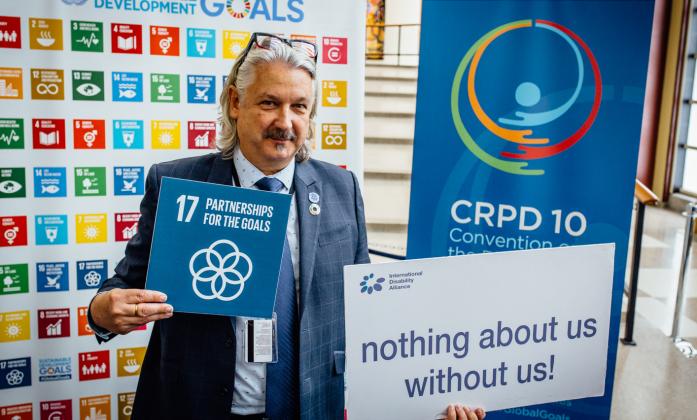
Today has been the first of two days of National Voluntary Reviews for the Sustainable Development Goals. These main sessions cover the 22 countries under review this year. Further side events and meetings also took place throughout the day, with continued recognition of the participation and leadership of persons with disabilities.
Persons with disabilities make the first civil society intervention at the first ever SDG global review - maintaining global focus on disability rights
Today's country reviews were grouped into three sets. During the morning session the Stakeholder Group of Persons of Disabilities, represented by Mr. Abdulmajid Makni delivered the first intervention on behalf of all Major Groups and other Stakeholders during the ministerial-level reviews of Mexico, Montenegro, Morocco, Sierra Leone and Switzerland. He asked these governments, How will you ensure the meaningful engagement of those groups that are most discriminated and face barriers to participation in the process such as feminist and women’s organisations, young people and youth-led organisations, persons with disabilities, LGBT groups, indigenous peoples, environmental and human rights defenders and migrant populations, among others? Download the full statement here
Major Groups and other Stakeholders, representing a wide diversity of civil society, also made joint statements during each other session, which all reinforced calls for the rights and participation of persons with disabilities in national level implementation of the SDGs. During the first session, the governments of Morocco and Sierra Leone highlighted the rights of persons with disabilities, and Madagascar and Norway's governments did again in the second session. Then the Finish and Samoan governments, during the afternoon session reviews, discussed the inclusion of persons with disabilities in their national implementation plans. This was the first time countries have voluntarily submitted to peer review at the United Nations on progress towards development targets, which never happened during the Millennium Development Goals, and the rights of persons with disabilities were a consistent theme throughout the reviews. In the afternoon session, during the review of Uganda, the only comment raised by Major Groups and other Stakeholders was concerns that the Ugandan government was not addressing the inclusion and rights of persons with disabilities in areas of the SDGs such as education, health, employment, accessibility, social protection and means of implementation.
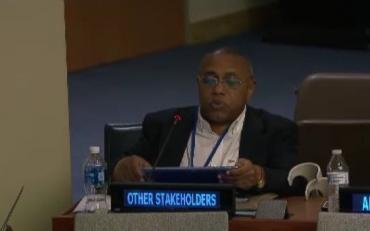
Alongside the HLPF, the European Union held a side event, to discuss how civil society is, and must be, an active player in the implementation of the 2030 Agenda, with various models and perspectives presented from the EU and other global regions. As part of the official EU Delegation, the former IDA Chair and current Treasurer, and President of the European Disability Forum, Yannis Vardakastanis emphasised the existing commitments governments have made in the human rights treaties which must be upheld through implementation of the SDGs, and that governments and civil society must work together to make this happen.
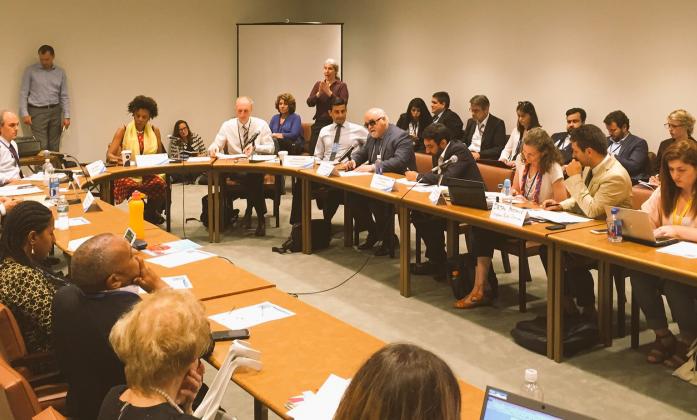
Another side event hosted by the U.K. and Ugandan Governments discussed 'Leaving no-one Behind - From Promise to Reality', including a presentation by Ambrose Murangira, of the Uganda National Association of the Deaf, representing the Stakeholder Group of Persons with Disabilities.
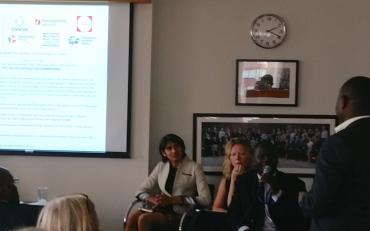
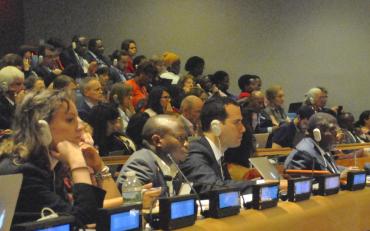
IDA Chair, Colin Allen presented during the General Discussion session towards the end of the day. He described the work accomplished by DPOs in the countries under review, including how, "in collaboration and in partnership, we carried out focused SDG advocacy trainings in Kenya, Malawi, Mexico, Sierra Leone, Samoa and Thailand. As a result, approximately over 300 persons with disabilities attended these workshops." Colin Allen also explained to governments that "DPOs are looking for opportunities to work with governments, and many are being turned away. Public consultations often exclude persons with disabilities themselves and their representative organisations. Even when wider civil society is invited to participate, meetings and documents are not accessible for many persons with disabilities, thus excluding them from democratic processes. Persons with disabilities encounter barriers to participate fully in designing, implementing and reviewing national development programmes." He also emphasised the willingness and availability of DPO to work together with all governments.
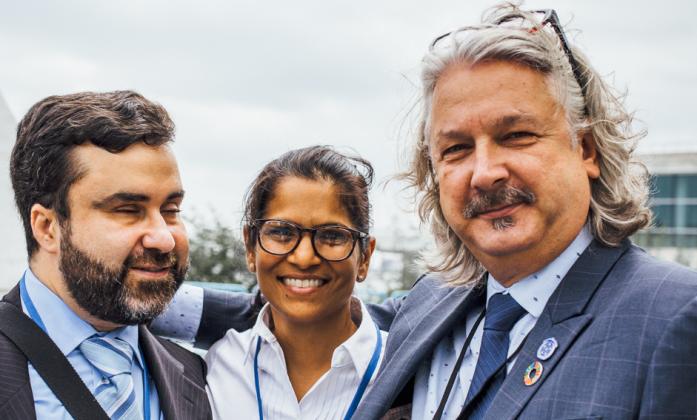
Click here to download full statement
Tomorrow is the final day of the 2016 High-level Political Forum! Join us online here: http://www.internationaldisabilityalliance.org/events/high-level-political-forum-2016
And by using #HLPF2016 #SDGs and #LeaveNoOneBehind
Photos from the HLPF are available on our Facebook page, click here.
